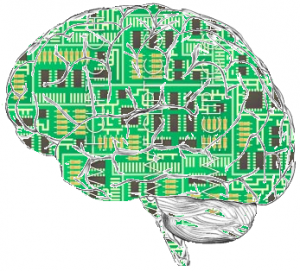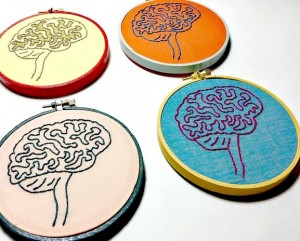
Back to basics with a look at the potential changes and outcomes of brain injury.
In brief – if we think about the brain controlling everything we do: then damage to the brain can affect everything we do.
Seven points to remember about the outcomes of brain injury
Before talking more about specific outcomes here are seven points to remember:
- Brain injury is complex and difficult to fully understand. An organ that can boast 100 billion cells has got to hold a few surprises for us all.
- Mostly the part of the brain damaged will determine the physical and cognitive effects.
- All parts of the brain are closely linked and work together so predicting the exact outcome can be difficult.
- The combinations of cognitive and physical effects following brain injury are different for every person.
- The outcome is random. Many years ago Headway Victoria in Australia used the analogy of acquiring a brain injury being like dealing a deck of cards, you do not know what hand you will be dealt, and this can change with time.
- Brain injury is often called a “hidden disability” because the person may have no physical effects but act or behave very differently.
- Even minor damage to the brain can have a significant effect on a person’s life.
To understand more about the impact of brain injury on the lives of people here are two Headway sites with a range of personal stories:
[box type=”info” style=”rounded” border=”full”]
Personal stories from Headway Ireland
Stories from Headway UK
[/box]
Major Areas of Change After Brain Injury
Firstly a summary of the major areas where changes can occur, followed by a more detailed list of the specific outcomes of brain injury.
o Cognitive Changes
Commonly brain injury affects our thinking, reasoning and the way we process information. The way a person uses their brain to solve problems, use skills and knowledge and look at the world may be changed.
o Behaviour
Behaviour can change. Sometimes it may seem to be more upfront, less able to control impulses and responses, and sometimes more withdrawn. The effects of brain injury on behaviour can be mild to severe and be verbal, physical, and sexual.
o Social And Emotional Effects
The development of social skills, along with being able to behave appropriately in social situations can be affected.
o Physical And Health
The brain controls everything our body does so any physical and health functions may be affected by brain injury. Like behaviour, the changes may mean functions are over, or under active.
o Sensory
The brain interprets the messages from our sensory organs such as our skin, eyes, and ears. An injury to the brain may mean an inability to correctly read these messages.
o Communication and Language
The outcomes of brain injury may mean the ability to communicate, speak and understand language is changed. This canbe either through direct damage to the part of the brain controlling each aspect, or through a combination of outcomes.
Potential Outcomes of Brain Injury
Here is a more detailed list of the kinds of outcomes you might see:
Cognitive (THINKING) Changes
Changes to a persons ability to think and reason are common outcomes of brain injury. Changes might include:
- memory problems; poor short or long term memory, loss of memory in particular areas such as how to do familiar tasks, loss of memory for a period of time such as around the time of trauma (Amnesia)
- trouble concentrating or paying attention,
- not being able to learn new things,
- being disorganized and not able to make a plan,
- difficulty putting things in the right order, or completing steps,
- having difficulty with reasoning and solving problems,
- difficulty organising thoughts
- being slower at processing information,
- seeming to be stuck on one track and not able to change,
- not being able to start things or follow things through to a conclusion.
Behaviour
Effects of brain injury on behaviour can include:
- not being able to put yourself in another persons shoes (Egocentricity)
- becoming irritable or angry more easily,
- reduced awareness of ones abilities and limitations
- being verbally or physically aggressive,
- becoming easily frustrated and angry
- being sexually inappropriate for instance touching strangers in a sexual way, making sexually suggestive comments,
- rushing into things without thinking first.
These outcomes of behaviour vary in degree and may increase with fatigue or with other changes happening in their life.
Social and Emotional Effects
The development of social skills and being able to behave appropriately in social situations can be affected.
- not remembering to take turns when talking,
- difficulty picking up the non-verbal cues of others, not picking up that the other person is bored or upset
- depression and anxiety,
- mood swings,
- changes in personality – more pronounced or different,
- not showing or expressing emotion,
- being short tempered and becoming easily frustrated,
- not responding as expected emotionally;
- laughing when hearing a sad story,
- crying or laughing more easily,
- laughing at a joke long after everyone else has finished laughing.
Physical and Health
The brain controls everything our body does so many physical and health functions may be affected by brain injury
Physical effects include:
- tiredness, fatigue
- weakness to one side of the body,
- paralysis,
- changes to muscle tone, either over or under tone; limb spasticity, contractions.
- changed state of consciousness; remaining in coma like state, different levels of awareness,
- changes to sexuality such as lower or increased sex drive, impotence,
- balance issues either while being still or while moving (or being moved),
- dizziness,
- ataxia or jerking movements, involuntary movement, difficulty getting muscles to work smoothly together,
- difficulty with fine motor co-ordination,
- neglect – not aware of one side or part of the body,
- mild to severe difficulty swallowing which may include episodes of choking,
- reduced strength, poor endurance.
Health may be affected including:
- headaches of varying frequency and severity. May be increased by stress or tiredness,
- hormonal changes: early puberty or menopause, thyroid disorders
- having seizures (Epilepsy),
- changes in temperature control,
- loss of the ability to control bladder or bowel (Incontinence).
Sensory
The brain interprets the messages from our sensory organs such as our skin, eyes, ears. An injury to the brain may mean an inability to correctly read these messages:
- unable to detect pain,
- they may have a loss of sense of smell (Anosmia) or taste (Ageusia),
- changes to vision: blurred vision, double vision, losing a quarter or more of vision in one or both eyes,
- hearing difficulties such as ringing in ears, loss of hearing, able to hear but not make sense of what is heard.
Sensory changes can result in some of the more unusual outcomes of brain injury such as synaesthesia where one sense appears to be linked or perceived as another. A person might see sounds as colour, or smell sights or sounds, tasting colour or words.
Communication and Language
Communication and language can be affected in a range of ways by brain injury, some of which are very subtle including:
- difficulty understanding written or spoken words,
- trouble finding the right words,
- not able to start a conversation
- rambling speech due to a difficulty planning what to say,
- difficulty putting words together to make a sentence,
- The tone and level of speech can change; more rapid speech, softer tone, or more monotone speech.
- Speech can also be affected by damage to the nerves that supply the physical instruments of speech such as the mouth, vocal chords. Sometimes leading to slurred speech, lack of ability to speak, breathing, quality and tone of voice.
And Finally
These outcomes of brain injury are not deliberate – it’s part of the damage. It’s the brain injury talking.
While there may be improvement, changes can be long lasting some may never change and tailor made support strategies will be needed to manage the combination of outcomes of brain injury.
There are many outcomes I may have missed, please feel free to add in the Comments below.


Pingback: Christmas and Celebrations after Brain Injury - Changed Lives, New Journeys
Pingback: Diagnosis and Mis-Diagnosis of Brain Injury - Changed Lives, New Journeys
Pingback: Decision-making and Problem Solving After Brain Injury - Changed Lives, New Journeys
Pingback: In The Eye of The Beholder: Challenging Behaviour - Changed Lives, New Journeys
Pingback: Back To Basics: Damage To Brain Structures - Changed Lives, New Journeys
Pingback: Brain Injury is Different - Changed Lives New Journeys
I am fairly new to this site . For someone who is trying to adjust to a new life with ABI , it is tremendous to understand that we can still have a good life . If only others understand it is only the cognitive function that lags behind the rest of the brain. There are positives and sticking to what I can do is all that matters. Brain Injury is Different was a lovely article.
Thankyou so much for the feedback and sharing a reminder that there are positives and also that cognitive difficulties are not the whole brain function. Regards
Melanie
Pingback: Brain Injury Changes Lives - Changed Lives New Journeys
Pingback: Brain Injury Misunderstood - Up Close and It's Very Personal - Changed Lives New Journeys
Pingback: Managing Celebrations after Brain Injury - Changed Lives New Journeys